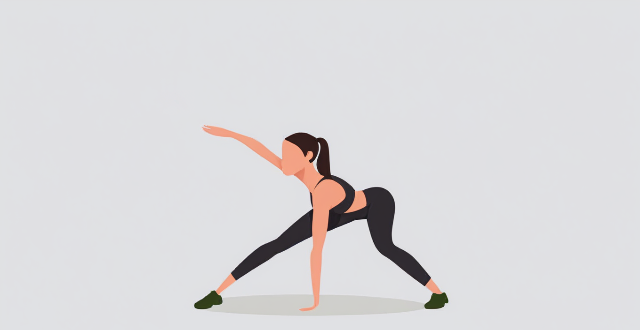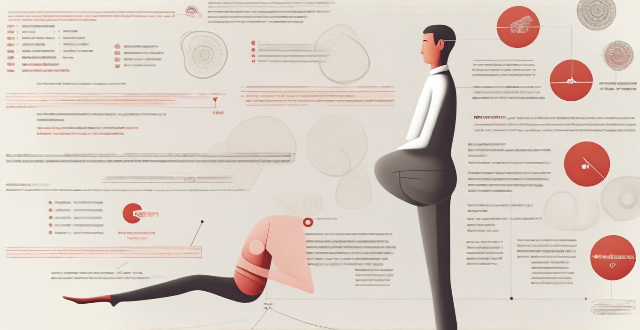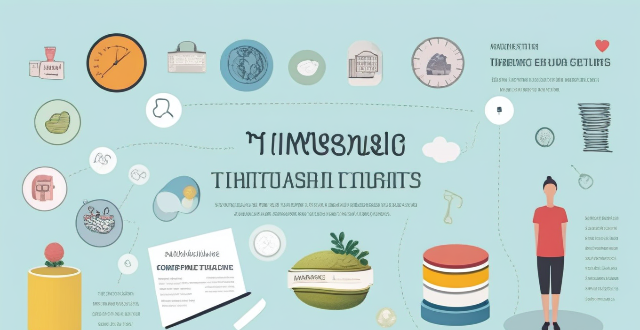Daily Stress

How can I reduce stress in my daily life ?
The article provides several tips on how to reduce stress in daily life, including identifying the sources of stress, practicing mindfulness and meditation, exercising regularly, eating a healthy diet, getting enough sleep, and connecting with others. It emphasizes the importance of taking steps to manage stress and improve overall well-being.

What role does cardiovascular exercise play in managing daily stressors ?
Cardiovascular exercise is an excellent way to manage daily stressors, as it reduces the body's physiological response to stress and leads to improved mental and physical health. The benefits of cardiovascular exercise include reduced stress levels, improved sleep quality, increased energy levels, and better mental health. To get started with cardiovascular exercise, set goals, start slow, find activities you enjoy, and mix up your workouts. Incorporating cardiovascular exercise into your daily routine can help you manage stress and improve overall well-being.

What role does sleep play in managing stress ?
Sleep is crucial in managing stress by regulating hormones, improving cognition, promoting emotional stability, offering physical health benefits, and enhancing quality of life. Prioritizing sleep is key for effective stress management.

How does exercise help in managing stress ?
Stress is an inevitable part of life, but regular exercise can help manage it effectively. Exercise releases endorphins, reduces muscle tension, improves sleep quality, boosts self-esteem and confidence, provides a sense of accomplishment, and promotes social interaction. To incorporate exercise into your daily routine, start slowly, find an activity you enjoy, make it a part of your routine, mix up your routine, and don't overexert yourself. By doing so, you can reap the numerous benefits of exercise for stress management and overall well-being.

How can stress management contribute to better personal health ?
Stress management is crucial for maintaining physical and mental health, as it can reduce the risk of chronic diseases, improve sleep quality, boost the immune system, reduce anxiety and depression symptoms, enhance cognitive function, and increase resilience. Incorporating stress management techniques into daily routines can lead to better overall well-being and a higher quality of life.

How can I identify the sources of my stress and address them ?
Identifying and addressing the sources of stress is essential for maintaining good health and well-being. The first step is to identify the sources of stress through journaling, reflecting on daily routines, and asking for feedback from others. Once identified, strategies such as prioritizing self-care, setting boundaries, practicing mindfulness, seeking support, and considering therapy can be implemented to address the stressors. By following these steps, individuals can effectively manage their stress and improve their overall well-being.

How do celebrities deal with stress and anxiety in their daily life ?
Celebrities handle stress and anxiety through exercise, meditation, yoga, healthy eating, hobbies, social support, professional help, time management, limiting social media exposure, and self-care routines.

How do successful athletes manage pressure and stress ?
Successful athletes use various strategies to manage pressure and stress, including visualization and mental rehearsal, mindfulness and meditation, goal setting and preparation, routine and consistency, social support, physical health and recovery, and flexibility and adaptability. These techniques help them stay calm, focused, and resilient during major competitions.

Does strength training have an impact on stress levels ?
Strength training can have a positive impact on stress levels through both physical and psychological benefits. It increases endorphin release, improves sleep quality, enhances self-esteem, provides distraction from stressors, fosters a sense of accomplishment, and promotes mindfulness. Consult with a healthcare professional before starting any new exercise regimen.

How do health management apps help individuals manage stress and improve mental wellbeing ?
Health management apps offer various features to help individuals manage stress and improve their mental wellbeing, including mindfulness exercises, sleep tracking, physical activity tracking, nutritional guidance, social support, relaxation techniques, goal setting, and educational content.

Can stress impact a woman's ability to conceive ?
The text discusses the potential impact of stress on a woman's ability to conceive, detailing how stress can lead to hormonal imbalances that affect menstrual cycles and ovulation, decreased sex drive, impaired egg quality, and difficulty maintaining pregnancy. It also provides coping strategies such as mind-body techniques, exercise, building a support system, and making lifestyle changes to manage stress levels and potentially improve fertility.

Can exercise help with stress management ?
**Topic:** Can Exercise Help with Stress Management? **Summary:** * **Introduction:** The inevitability of stress and its potential impact on health highlight the importance of effective stress management. Exercise is often touted as a beneficial method for reducing stress. * **Relationship Between Exercise and Stress:** * **Physical Effects:** Exercise triggers endorphins, reduces cortisol levels, and improves sleep quality—all of which contribute to stress reduction. * **Mental Effects:** Enhanced cognitive function, increased self-esteem, and mindfulness techniques associated with exercise can aid in stress management. * **Benefits of Exercise for Stress Management:** * **Physical Benefits:** Improved cardiovascular health, weight management, and pain relief can reduce stress caused by related health issues. * **Mental Benefits:** Exercise can alleviate symptoms of anxiety and depression, improve mood, and increase resilience to stress. * **Practical Tips:** * **Setting Goals:** Start small and choose enjoyable activities to make exercise a sustainable habit. * **Consistency:** Scheduling workouts, finding an accountability partner, and tracking progress can help maintain a regular exercise routine. * **Conclusion:** Exercise is a powerful tool for managing stress, offering both physical and mental benefits. Incorporating it into one's lifestyle can significantly enhance overall well-being and resilience to life's challenges.

Can exercise physiology help in managing stress and anxiety levels ?
Exercise physiology plays a significant role in managing stress and anxiety levels by promoting various physiological responses that counteract the negative effects of these conditions on the body. By incorporating regular physical activity into your lifestyle, you can improve your overall mental well-being and reduce the impact of stress and anxiety on your daily life.

How does stress management through exercise impact professional well-being ?
The impact of stress management through exercise on professional well-being is significant and positive. Professional well-being refers to overall satisfaction and happiness in the workplace, which includes job satisfaction, work-life balance, relationships with colleagues, and personal growth opportunities. Exercise is a proven method for managing stress, as it releases endorphins and reduces levels of stress hormones like cortisol and adrenaline. Regular physical activity also promotes better sleep, essential for stress management. The impact of exercise on professional well-being includes improved mental health, enhanced cognitive function, increased energy levels, better work-life balance, and improved interpersonal relationships at work. By incorporating regular physical activity into our daily routine, we can achieve these benefits, leading to increased productivity, reduced absenteeism, and improved job performance. Therefore, organizations should promote exercise among their employees as part of their overall wellness program.

What are the best types of exercises for reducing stress and anxiety ?
This article discusses the best types of exercises for reducing stress and anxiety, including cardiovascular exercises like running and cycling, strength training exercises like weightlifting and resistance band training, as well as yoga and meditation. It provides benefits and tips on how to get started for each type of exercise. Incorporating these exercises into your daily routine can help to reduce stress and anxiety, leading to improved overall well-being.

Is yoga an effective method for stress relief ?
Yoga is a popular method for stress relief, offering physical, mental, and emotional benefits. Research supports its effectiveness, and incorporating yoga into your routine can significantly reduce stress levels. Consistency and personalization are key to experiencing its full benefits.

How does meditation help in reducing stress levels ?
Meditation is a practice that helps in reducing stress levels by calming the mind and body, improving concentration, promoting emotional health, increasing self-awareness, and enhancing mindfulness. It is a powerful tool for managing stress effectively and leading a happier, healthier life.

How does stress management contribute to sports health maintenance ?
Stress management is crucial for athletes' physical recovery, immune function, mental clarity, emotional well-being, consistency in performance, and competitive advantage. By managing stress effectively, athletes can improve their overall health and achieve success in their sport.

How does stress affect women's mental health ?
This text discusses the effects of stress on women's mental health, including anxiety and depression, sleep disturbances, emotional eating, low self-esteem, difficulty concentrating, irritability and mood swings, substance abuse, and physical health issues. It emphasizes the importance of self-care practices to manage stress effectively.

Are there any breathing techniques that can help reduce stress ?
Breathing techniques are a simple yet powerful tool for reducing stress levels and promoting relaxation. By practicing these techniques regularly, you can improve your overall well-being and reduce the negative effects of stress on your body and mind. Some effective breathing techniques for stress reduction include deep breathing, diaphragmatic breathing, alternate nostril breathing, and box breathing. These techniques help to increase oxygen flow to the brain, relax the body, balance the left and right hemispheres of the brain, and slow down the heart rate. Remember to focus on your breath and try to clear your mind of any distractions while practicing these techniques.

How much exercise do I need to do to manage my stress effectively ?
Managing stress through exercise is a crucial aspect of maintaining overall health and well-being. The ideal amount of exercise for stress management, as per the American Heart Association, is 150 minutes of moderate-intensity aerobic activity or 75 minutes of vigorous aerobic activity weekly, along with muscle-strengthening activities involving all major muscle groups at least twice a week. Different types of exercises such as aerobic exercises, strength training, flexibility exercises, and mind-body exercises can contribute to stress relief. When creating an exercise routine, it's important to start slow, choose enjoyable activities, mix up different types of exercises, set realistic goals, and make it a habit. Consistency is key in managing stress through exercise.

Is it better to exercise alone or with others for stress relief ?
Exercising for stress relief can be highly effective, whether it is done alone or with others. Each approach offers unique benefits that can contribute to stress management and overall well-being. Ultimately, the decision should be based on personal preferences, lifestyle, and fitness goals.

How do I manage stress while training for a marathon ?
Managing stress is crucial during marathon training. Tips include setting realistic goals, following a structured plan, prioritizing recovery, staying hydrated and nourished, getting enough sleep, practicing mindfulness, seeking support, managing time wisely, and embracing the process. These strategies help minimize stress and make the training journey more enjoyable.

What are some strategies for reducing sugar intake in my daily meals ?
To reduce sugar intake in daily meals, strategies includeTo reduce sugar intake in daily meals, strategies include whole foods, limiting sugary swapping snacks, being mindful of condiments, gradually reducing sugar, planning meals, and getting support.

Are there any foods that can help alleviate stress ?
The text provides a summary of foods that can help alleviate stress, including dark chocolate, avocado, blueberries, salmon, and chamomile tea. Each food is explained in terms of its benefits and recommended intake. The article emphasizes that while these foods may help reduce stress levels, they should not be used as a substitute for professional medical advice or treatment.

How does stress management affect women's well-being ?
Stress management plays a crucial role in women's well-being, affecting their physical, mental, and emotional health. By managing stress, women can improve their immunity, sleep quality, and reduce the risk of chronic diseases. It also helps in improving mood, concentration, and reducing anxiety and depression. Stress management can lead to improved relationships, self-esteem, and increased resilience. Overall, it is essential for women's well-being and can lead to a happier and healthier life.

What role does stress play in sleep disturbances and how can it be managed ?
Stress can significantly impact sleep quality by causing difficulty falling asleep, frequent awakenings, light sleep, and early morning awakenings. Managing stress through relaxation techniques, regular exercise, healthy eating habits, a consistent bedtime routine, a comfortable sleep environment, limited screen time, and seeking professional help when needed can improve sleep quality and overall well-being.

How much time should I dedicate daily to achieve rapid progress in a foreign language ?
To achieve rapid progress in a foreign language, itTo achieve rapid progress in a foreign language, iticate a significant amount of time it is crucial to dedicate a significant amount of time daily to practice and study, including both active and passive learning activities. Establishing a daily study routine, setting realistic goals, and maintaining consistency are key strategies for success.

What are the best stress-relieving sports ?
Stress is a common problem that affects people of all ages and backgrounds. Fortunately, there are many sports that can help relieve stress and improve overall well-being. Some of the best stress-relieving sports include yoga, swimming, running, cycling, and boxing. Yoga combines physical activity with relaxation techniques and involves various postures, breathing exercises, and meditation. Swimming provides a full-body workout and has a calming effect on the mind. Running releases tension and boosts endorphins, while cycling is a fun and exciting way to get active. Boxing may seem like an unlikely choice for stress relief, but it can actually be very therapeutic. Incorporating these sports into your routine can help you manage stress and improve your overall health and well-being. Remember to listen to your body and start slowly if you're new to any of these activities. With consistent practice, you'll soon reap the benefits of these stress-relieving sports.

How do celebrities handle stress and pressure ?
Celebrities manage stress through meditation, exerciseCelebrities manage stress through meditation, exercise, social support, time management exercise, therapy, creative outlets, social support, time management, and healthy lifestyle choices.